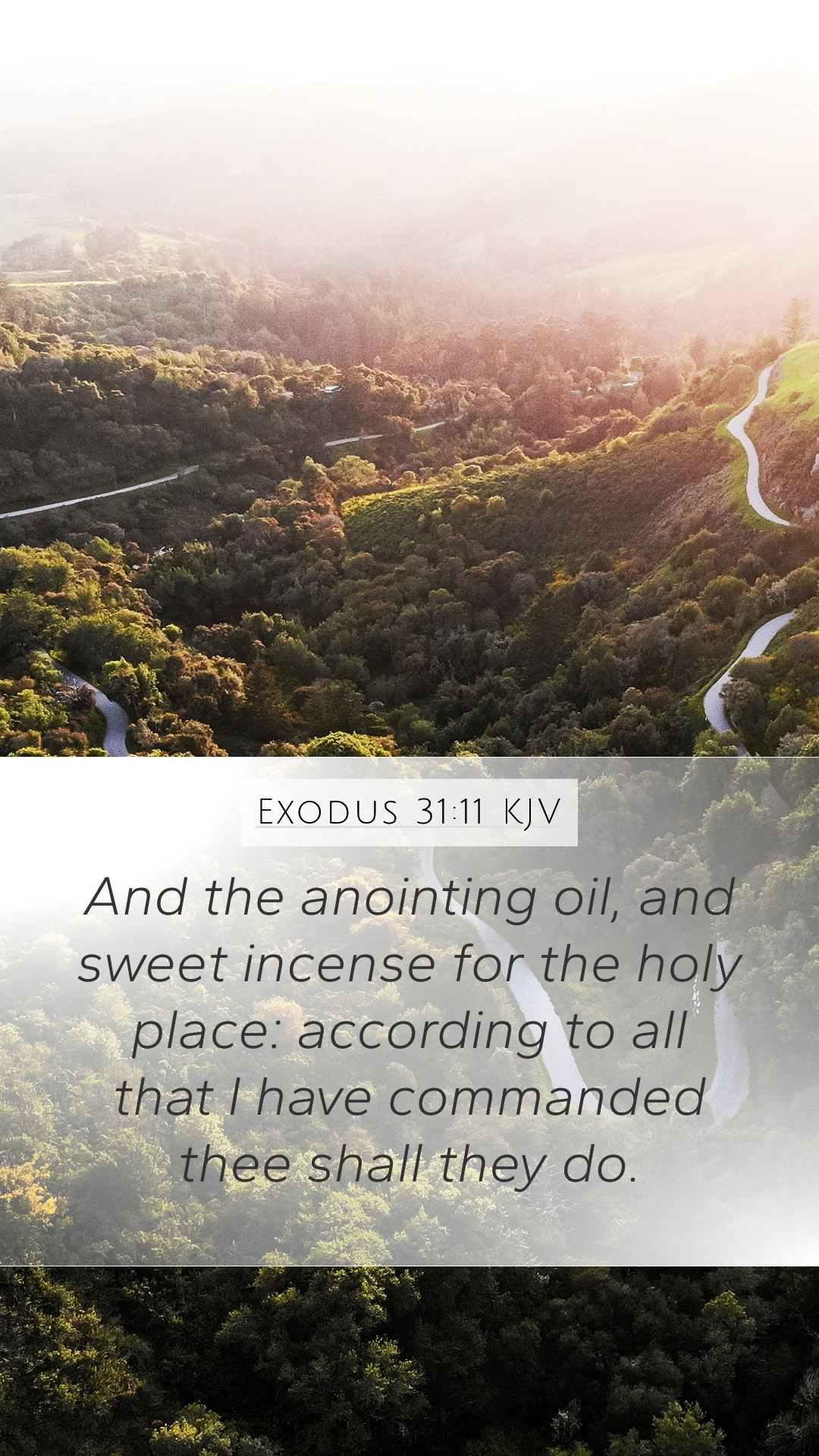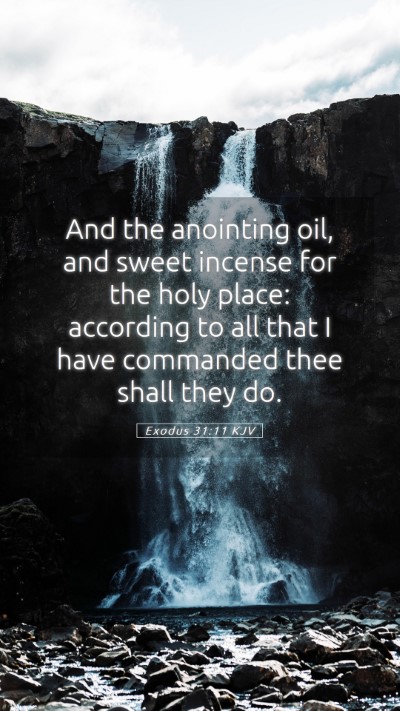Exodus 31:11 - Bible Verse Meaning and Commentary
Exodus 31:11 states, "And in the ancient tabernacle of testimony, the anointing oil, and the incense of sweet spices, and the tabernacle and all the vessels thereof, and the priests, for the service of the holy place, shall be anointed." This verse comes at a pivotal time, providing crucial insights into the significance of the sacred artifacts used in the worship of God as designed by Moses.
Understanding Exodus 31:11
In this verse, we see a divine directive regarding the consecration of items that were central to the worship life of the Israelites. These insights help us delve into the Bible verse interpretations that emphasize God's holiness and the requirements placed upon His servants and sacrificial offerings.
The Importance of the Anointing
- Divine Selection: The anointing signifies God's choice of the vessels and the priests for His service. This theme aligns with the Biblical exegesis that emphasizes the need for religious leaders to be set apart for God's work.
- Sacred Purpose: Each item mentioned—the altar, the vessels, incense—holds profound significance in the practice of worship. The meaning of Bible verses comes to light as these objects are not merely utilitarian; they are imbued with purpose and holiness.
- Representing Christ: In Christian theology, the items mentioned can be seen as foreshadowing the ultimate work of Christ, where He fulfills the roles they prefigured. This importance magnifies when conducting Bible verse commentary.
Insights from Public Domain Commentaries
Commentators such as Matthew Henry, Albert Barnes, and Adam Clarke all provide valuable insights on Exodus 31:11:
Matthew Henry's Commentary
Henry emphasizes the necessity of sanctification in worship, reflecting that without divine anointing, the spiritual service rendered can lack the potency and grace required to meet God’s holy standards. He explores how this verse illustrates God’s desire for a distinct and holy approach to worship.
Albert Barnes' Commentary
Barnes focuses on the anointing oil and incense, interpreting them as symbols of the Holy Spirit’s presence. He elaborates on how these elements are not just ritualistic but are essential in understanding the sanctity of the spiritual practices in the Old Testament, thus enhancing our bible verse understanding.
Adam Clarke's Commentary
Clarke provides a historical context for the artifacts, linking them to the covenant between God and Israel. He stresses that their consecration signifies God’s ongoing relationship with His people and how it prefigures the sacrificial system that would culminate in Christ.
Application in Daily Life
The contemporary reader can draw from this verse practical Bible study insights about the importance of holiness and divine selection in their own lives. Just as God sanctified the items and priests of His tabernacle, believers today are called to recognize their lives as vessels for His purpose.
Related Cross References
- Exodus 30:22-33: The instructions regarding the anointing oil.
- Leviticus 8:10-12: The anointing of Aaron and his sons.
- 1 Peter 2:9: Believers as a chosen generation, a royal priesthood.
Final Thoughts
In summary, Exodus 31:11 encapsulates the notion of divine purpose in worship, encouraging us to approach God’s service with the awareness of the sacred. It serves as a reminder of the importance of understanding Scripture not only in seeking Bible verse explanations but also in living out its meanings in daily life.


